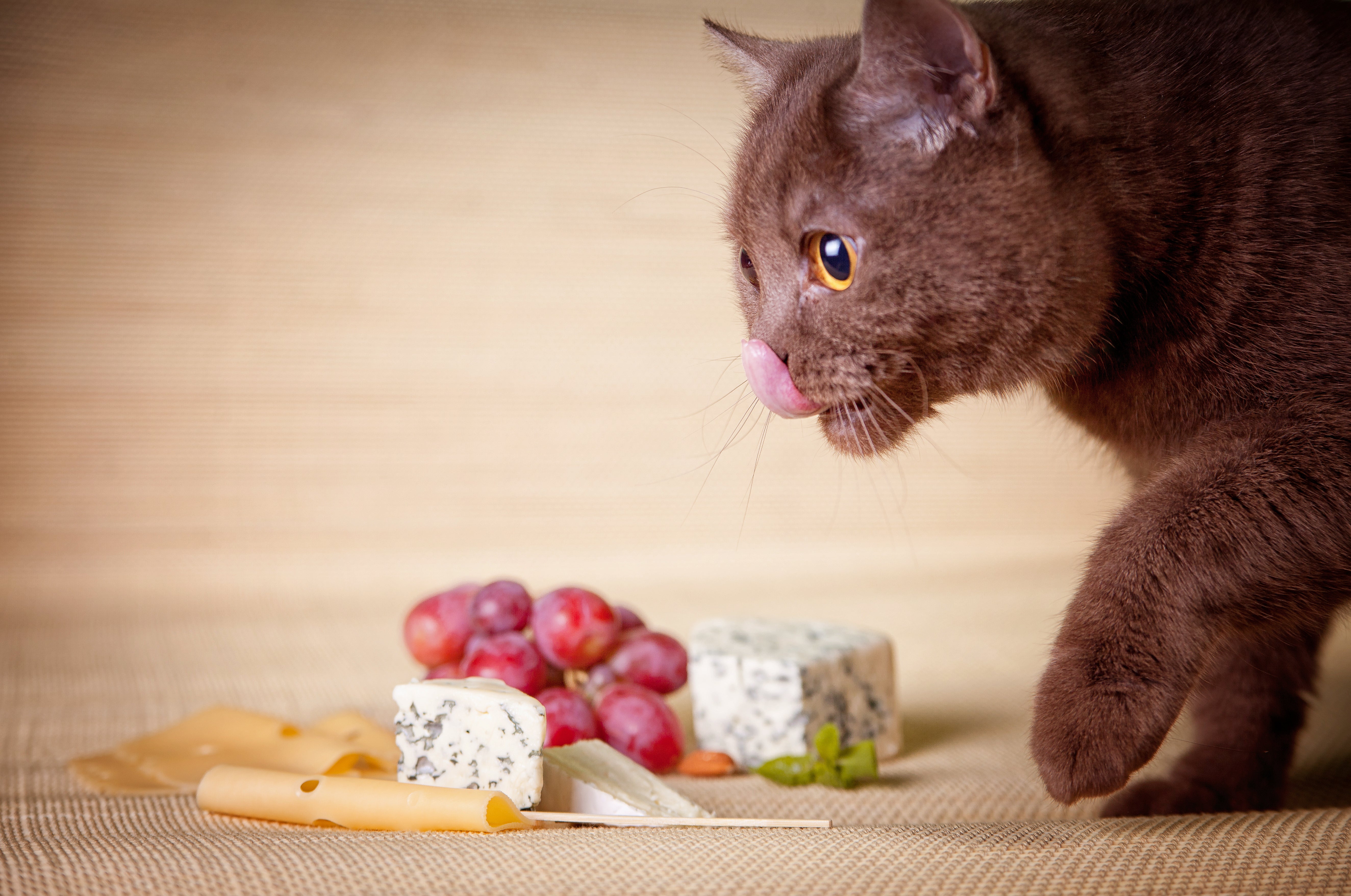13 Most Playful Cat Breeds: What You Need To Know
19-12-2023 By Bridget Reed

If you’ve ever made a grilled cheese sandwich in front of your feline, chances are they were there at your side meowing for a bite. Although it’s obvious that your furry friend craves a cheesy snack just like you do, it can be hard to determine what human foods are okay for your cat and what foods you should definitely keep away from them.
In this article, we’ll take a close look at whether or not your feline friend can safely eat cheese.
Everyone’s seen a cartoon image somewhere of a cat lapping up milk, so it makes sense that we naturally associate our felines with dairy. However, most cats are actually lactose intolerant, so it’s not always the best idea to give them a cheesy treat.
That said, not all cats are lactose intolerant or allergic to dairy. If your cat can tolerate lactose, you can give them cheese in small amounts. A small piece of cheese for a cat is roughly the size of a die.
Given that cheese is not necessarily healthy for your four-legged friend, you should only give them a cheesy treat now and again, even if they can digest cheese well.
Kittens need to eat a very specific diet when they are young because they are growing and need plenty of nutrients to support all their dietary needs. For that reason, many veterinarians recommend kibble designed specifically for kittens, which may make you wonder, what about treats?
Although very small kittens produce the lactase enzyme, which allows them to drink their mother’s milk, by the time they can eat solid treats such as cheese, they no longer can produce this enzyme. You also don’t want to get your little kitten into the habit of eating cheese frequently, so it’s best to keep them on an age-appropriate diet.
Much like humans, every cat has a different digestive system, so it’s impossible to say what exactly will happen if your feline gets their paws on some cheese. If your cat can comfortably eat cheese, chances are if you give them a little to snack on, you won’t notice any symptoms after consumption.
However, if your cat is not the type of feline who can digest cheese, they’ll likely experience digestive issues after consuming cheese or any type of dairy.
Some digestive issues that your four-legged friend may experience include:
Check out the next section for more information on feline lactose intolerance and dairy allergies.
As previously mentioned, your cat can be lactose intolerant or allergic to dairy. Many cats have some level of dairy intolerance. If your four-legged friend has a dairy allergy, you’ll notice that they will react poorly to a small bit of cheese.
If your feline has a dairy allergy and you feed them dairy products, they may also experience digestive issues that can negatively affect their immune system. That said, it’s important to keep a close eye on your cat when introducing new foods into their diet.
If your furry friend shows any signs of an allergic reaction after eating something new, take them to the veterinarian as soon as possible.
Even if your cat can digest cheese, they shouldn’t be eating much of this tasty treat. First, cats are obligate carnivores, meaning they are naturally supposed to eat a diet mostly of meat.
For the same reason, it’s not advisable to feed your cat a vegan diet. Cheese is also high in fat which can lead to weight gain, and contains lots of calories. If your cat is overweight or you are worried about them gaining weight, keep them away from any cheesy treats.
Obesity can cause several health problems for your feline, so it is a good idea to monitor their weight and keep them in a healthy weight range.
Although cheese is only recommended for felines who can digest it in small amounts, there are a few benefits. First, cheese is a low-carb treat which is good because cats have no natural need for carbohydrates. Cheese is also full of calcium, which your furry friend needs.
Also, if you have to give your cat a pill, you may find that the most effective way to administer the medication is to hide it in a small piece of cheese. Given that cats are attracted to the fat and protein in cheese, they will likely eat the entire piece with the pill without thinking twice.
Yes, some varieties of cheese are better for your cat than others. Below are a few of the most common cheeses and whether or not they are okay for your feline friend:
If your cat is allergic to cheese but loves the smell, you might think that non-dairy cheese is the perfect substitute. However, it is no healthier for cats, and likely contains lots of fat and salt, both harmful to your feline friend.
Additionally, non-dairy cheese can contain spices and ingredients such as onion and garlic, which can be fatally toxic for cats.
You can safely give your feline friend a small piece of cheese occasionally as a special treat if they are not lactose intolerant or allergic to dairy. However, you should only give your feline cheese now and again because it contains a lot of fat and is a high-calorie treat.
That said, there are several other human foods you can give your cat when trying to mix up their diet. At the end of the day, though, treats should only make up 10 percent of your four-legged friend’s food.
Sources:
Diagnosis and management of food allergy and intolerance in dogs and cats | NIH
Owner and Cat-Related Risk Factors for Feline Overweight or Obesity | NIH
Shipping Text / Shipping Price